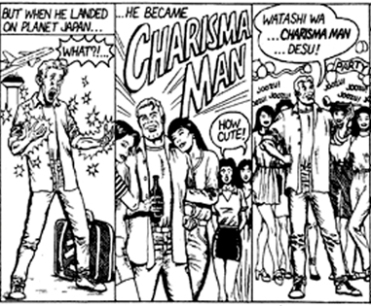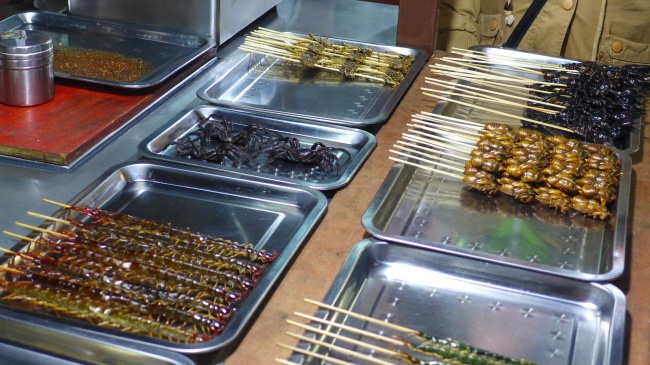Hey Kids,
As I’m down to my last couple of weeks here in China I wanted to write some more posts before I get absorbed back into the Western world. This is one that I’ve been meaning to write for a while, but it is also one that I’m glad I left to the end. I’m gonna try and keep this as observational and vaguely informative as possible.
So, you’ve just arrived in China.The last couple of weeks were spent partying and indulging on delicious home cuisine with tears in your eyes thinking about the next time you will get the chance to cuddle up with a hot chocolate and a cinnamon scroll. But that doesn’t matter, you’re in China now. The land of small waists and tiny, chopstick-sized mouthfuls. You feel a teensy bit excited about how easy it will be to get into that pair of jeans that were too small but you bought anyway cause they were on sale. Actually, they were currently lining the bottom of your suitcase in anticipation for that day to come.
The next thing you know, you are swept up in the gentle chaos that is China. Losing weight and eating well is the last thing on your mind, as so it should be.
When I got to Ji’an I realised that those too-tight jeans were even tighter. It got me thinking…what went wrong? When I was studying in Nanjing I was doing Taichi and Yoga weekly. I had tried to do some running, but was shortly put off due to the increasing smog levels. I felt like I ate pretty well at meal-times, always lots of veggies and very minimal meat.
It wasn’t until I started to notice my weight getting back to normal did I realise where those extra calories had come from.
1- A complete change in diet leads to cravings: In the west we eat a large amount of bread and wheat products, as well as A LOT of dairy. In China, these are two of the hardest things to find and the worst things to consume when you do find them. Whereas back home I would usually be found eating a salad sandwich with organic Rye bread or something, in China that wheat craving was replaced by Chinese bread which is NOT REALLY BREAD. I’m not entirely sure what it is, but the locals consider it a sort of confectionary snack, it is blindingly white and packed full of sugar. The same goes for dairy. I started taking calcium supplements because the lack of milk products was such a drastic change for my body, my fingernails were soft and cracked and I ate a lot of eggs because it was one of the only dairy sources I could find that seemed somewhat natural. China has a bad history of milk product poisoning (especially, baby formula, they always know about Australia because that’s where people buy their baby formula from) so I tried to avoid dairy as much as possible. However, when I did find it it was in the form of Bubble tea, drinking yoghurt and weird fruity flavoured milk drinks sold in convenience stores. All of these things are packed with sugar. So, you know, I couldn’t find that low fat Greek yoghurt I like so much.
2- Communal meals don’t control portion sizes: A lot of the time when you eat out in China, you go to a restaurant with a bunch of other people and order approximately a dish each, which is then laid out on the table for everyone to attack with their chopsticks. If you have grown up eating a single serving on your own plate, like I have, then it becomes pretty tricky to work out how much food you need to eat before you are full. After a childhood of being told to ‘clean your plate’ it is psychologically hard to stop eating when confronted with a table full of food.
3- Chopsticks do not lead to taking smaller bites: Have you seen the locals eat? I think it’s even faster than a knife and fork because in China you just raise the bowl up to your mouth and basically pour the food in. None of this cutting, spearing, raising to the mouth junk.
4- Eating means you don’t have to talk: Sitting down with a large group of people to a meal generally means they will begin multiple conversations around you, speaking rapidly in a language that is hard enough to follow for you even without the background din of other rowdy diners. What do you do? You can’t just sit there, grinning like a fool while straining to hear the people on the other side of the table who may or may not have just mentioned the political situation in Xinjiang. So, you eat. Eating means you can smile, nod and generally look amiacable without seeming rude or so clearly out of your depth.
5- Vegetables do not equal healthy here: Yes, I will admit that I managed to raise my daily servings of vegetables from, like, three per day to ten. However, somehow I don’t think the health benefits count if said vegetables are fried in gallons of oil and seasoned with various amounts of white sugar, salt and MSG. The oil, salt and MSG also lend a very addictive quality to that innocent looking eggplant.
So, how did I overcome these problems whilst in Ji’an?
1- Cravings: Removed from Nanjing, I had even less options in a small city like Ji’an when it came to finding any substitutes for wheat and dairy. Also, I was more used to the diet by this point and didn’t feel that weird hunger after every meal anymore.
2- Communal meals: I was no longer in a big student body that wanted to go out for a communal meal almost every evening, so I had less instances of these. Also, when I went out I made sure to eat slower and to drink copious cups of tea-water-stuff. I also became more confident in speaking Chinese and made a point to start a conversation with the person directly next to me, thereby distracting me from my food.
3- Vegetarianism: I made the decision to embrace vegetarianism shortly after getting to Ji’an. I never particularly enjoyed eating meat, especially not the fatty, bone- ridden (dodgy) meat that you get in China.
4- Home cooking: With my own apartment and basic kitchen set up (*COUGH* a bucket as a sink, an electric pan, one bowl and a pair of chopsticks that the old woman downstairs gave me) I managed to work out how to make some pretty delicious meals using the vegetables that the villagers sold and no oil, no MSG and very minimal salt.
5- Exercise: It definitely helped that Ji’an has nearly zero pollution and that it was the middle of summer instead of the dead of winter. I bought a pair of rollerblades and proceeded to get insanely passionate about getting home from work in time to go for a skate around the university grounds.
So, in conclusion, losing and gaining weight is pretty common when dealing with such drastic changes to one’s circumstances. It isn’t something to be worried about and ain’t nobody got time to obsess over a pair of jeans in the middle of an adventure like living in China. However, I hope this might help some other foreigners in China who are wondering where they ‘went wrong.’ I also hope that people who have never lived in a foreign country for an extended period of time will be able to skip the scrutiny of someone’s outward appearance when they get home, and notice instead how much has changed inside.












